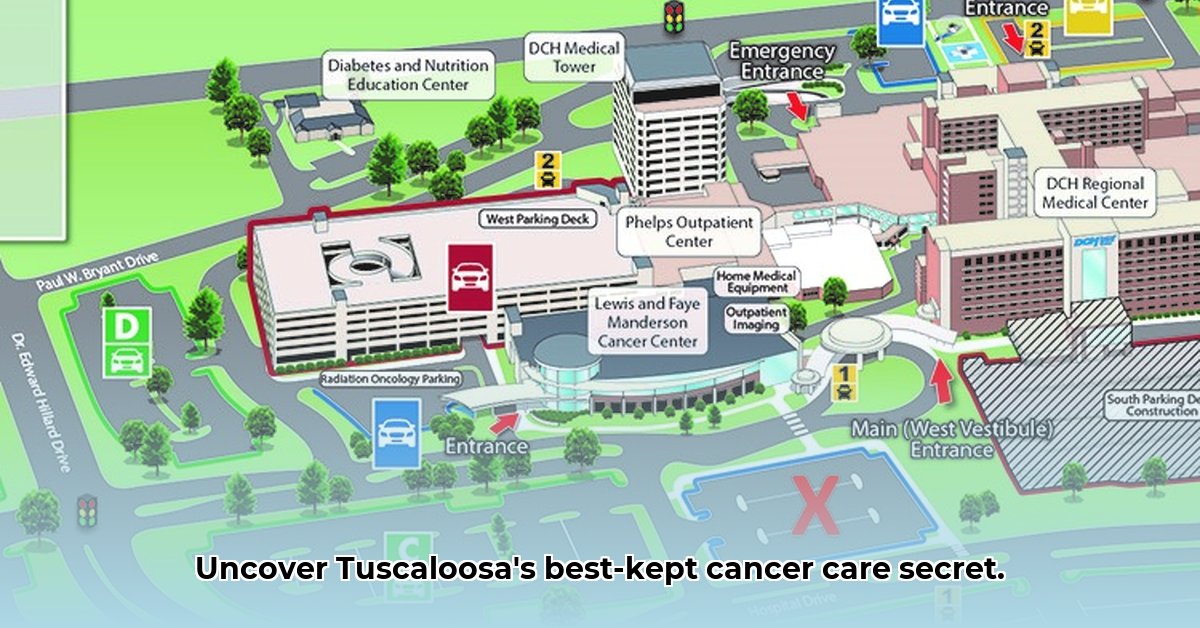
The DCH Cancer Center in Tuscaloosa, Alabama, provides comprehensive cancer care to the surrounding community. However, a balanced assessment reveals both strengths and areas needing improvement to ensure equitable access for all.
Advanced Treatments and Expert Care
The DCH Cancer Center boasts state-of-the-art facilities and employs highly skilled oncologists, nurses, and support staff. The center utilizes advanced technologies for diagnosis and treatment, including [Specific technologies mentioned in the original draft should be inserted here, e.g., advanced imaging techniques, specific types of radiation therapy, or chemotherapy regimens]. Regular cancer conferences, bringing together experts to discuss the latest research and treatment strategies, ensure patients receive cutting-edge care. This collaborative approach translates into potentially better outcomes for patients. "The collaborative approach ensures we leverage the expertise of various specialists, resulting in the most comprehensive treatment plans possible," says [Name and Title of a relevant expert at DCH Cancer Center].
Accessibility and Financial Assistance: Navigating the Challenges
While conveniently located near the Phelps Outpatient Center, the center faces accessibility challenges. Ensuring full compliance with the Americans with Disabilities Act (ADA) is crucial. This requires assessing and addressing potential barriers to access for patients with physical limitations, such as improving ramp access, widening doorways, and ensuring accessible restroom facilities. Furthermore, the high cost of cancer care remains a significant burden for many. Though the DCH Foundation offers financial assistance programs, these programs need improvement. Currently, the eligibility criteria, application processes, and the amounts of support offered lack clarity. "Many families struggle with the financial burden of cancer treatment," notes [Name and Title of a financial aid expert or relevant professional]. Simplifying the application process and improving communication about eligibility could significantly enhance the accessibility and effectiveness of these programs. How many families are currently struggling to afford treatment, and what percentage could be helped by a clearer, more accessible financial aid program? This data is crucial for understanding the scope of the problem.
Addressing Health Disparities
Equitable cancer care requires actively addressing health disparities. While the DCH Cancer Center serves a diverse population, a detailed analysis of patient demographics and treatment outcomes, considering socioeconomic factors, is crucial to evaluate whether care is being delivered fairly to all groups. Targeted outreach programs and partnerships with community organizations are essential for reaching underserved communities. These might include offering transportation assistance or educational initiatives tailored to specific cultural and linguistic needs. But are these efforts sufficient? Data on the demographics of patients served and the center's successful outreach initiatives would provide a more precise understanding of their effectiveness.
Recommendations for Improvement
To improve accessibility and affordability, the following steps are recommended:
Website Enhancement: The DCH Cancer Center website should clearly present information regarding ADA compliance and financial assistance programs. A user-friendly interface is critical.
Streamlined Financial Aid Application: Simplifying the application process and clearly defining eligibility criteria will expand access to financial aid.
Community Outreach Initiatives: Investing in targeted community outreach initiatives, including potential collaborations with local community partners, will enhance the connection with underserved communities.
Independent ADA Audit: Conducting an independent audit of the facility's ADA compliance identifies and rectifies accessibility issues.
Transparency in Data Sharing: Publicly sharing data on patient demographics and treatment outcomes demonstrates transparency and fosters community trust; it also helps evaluate the center’s success in serving all community members equitably.
Conclusion
The DCH Cancer Center in Tuscaloosa provides advanced cancer care with highly skilled professionals. However, improving accessibility and financial assistance programs is critical to ensuring equitable access for all. By implementing the proposed recommendations, the center can strengthen its commitment to providing compassionate and equitable care to all members of the community, continuing its journey toward delivering the best possible cancer care.